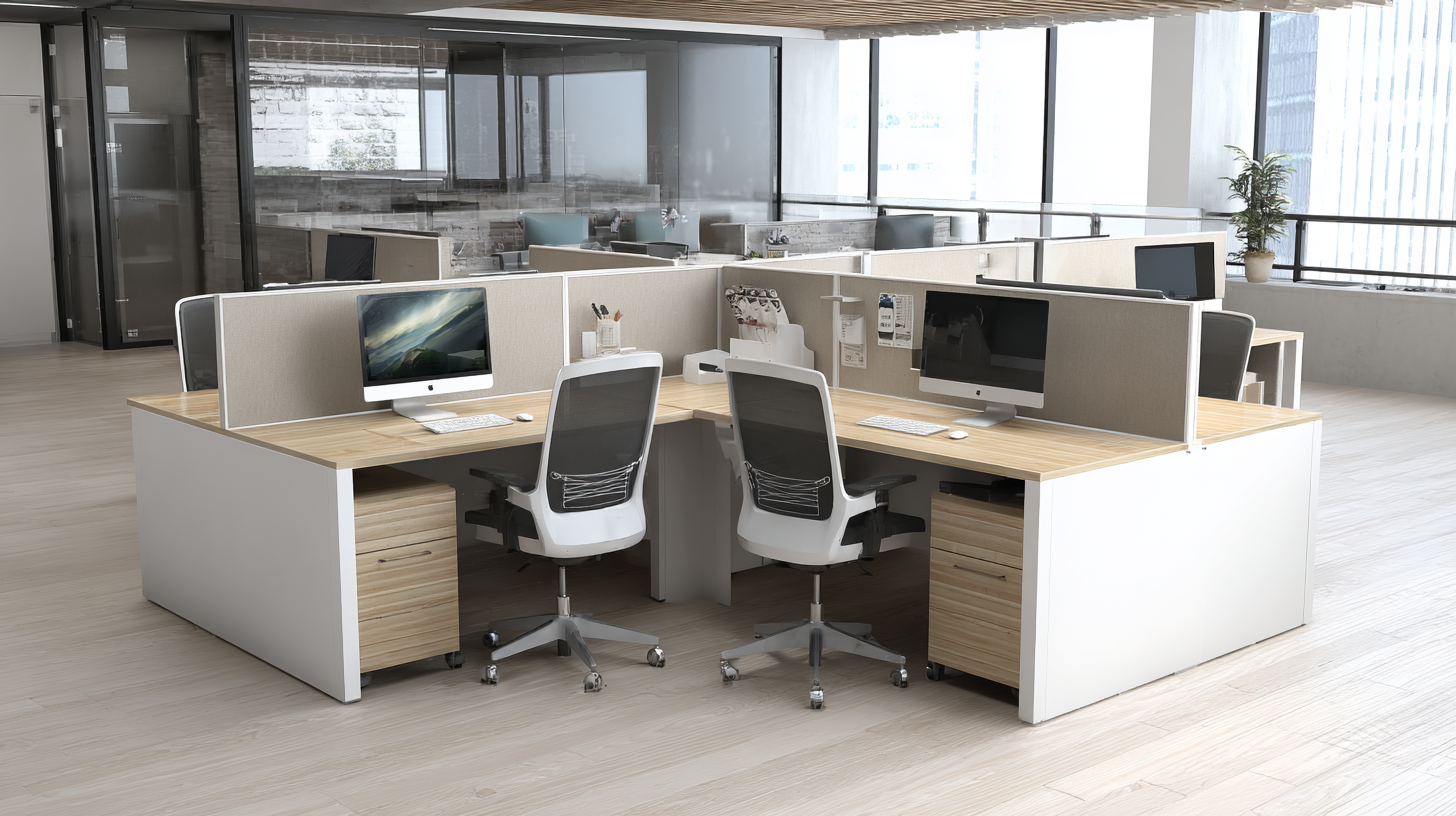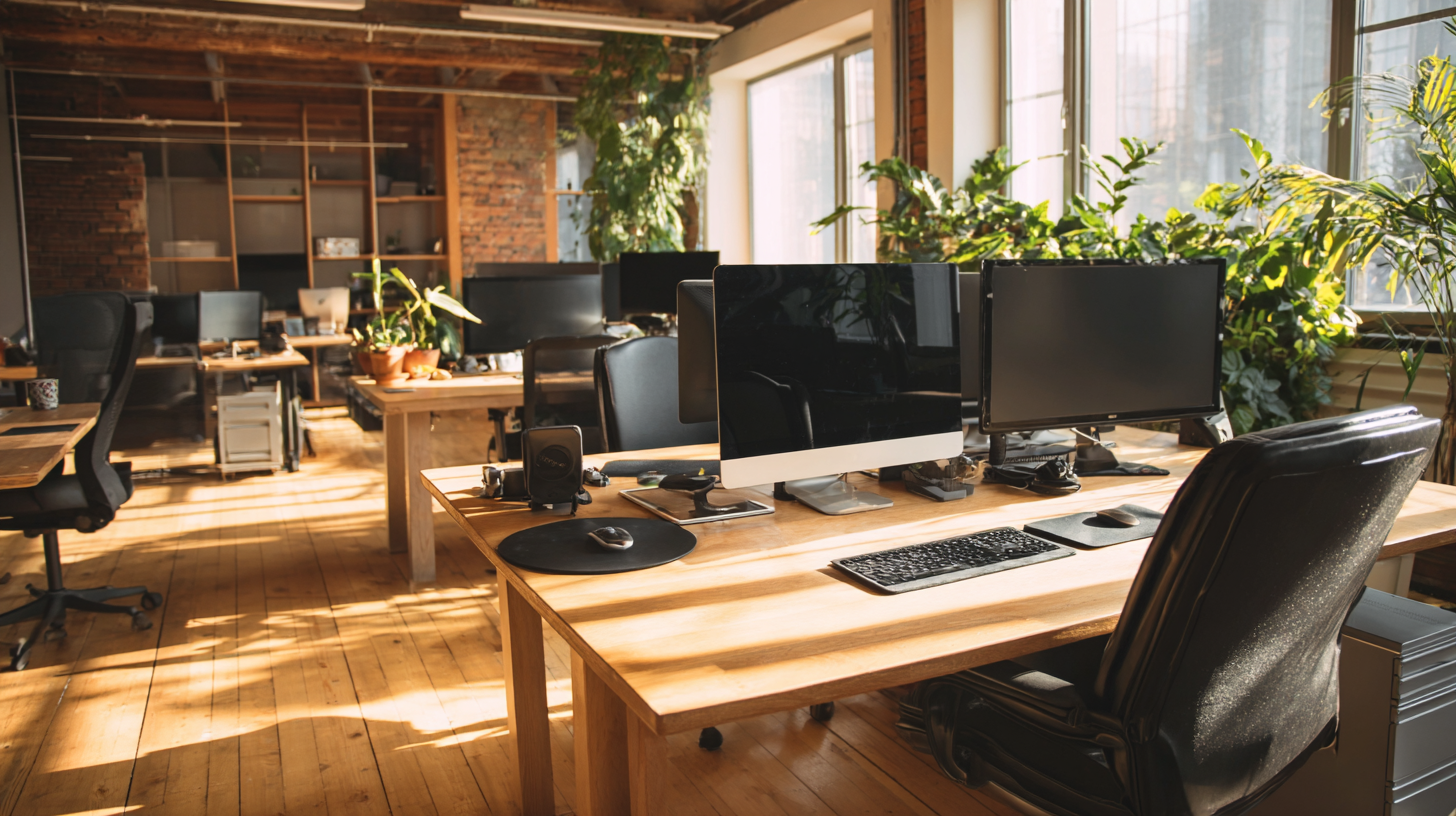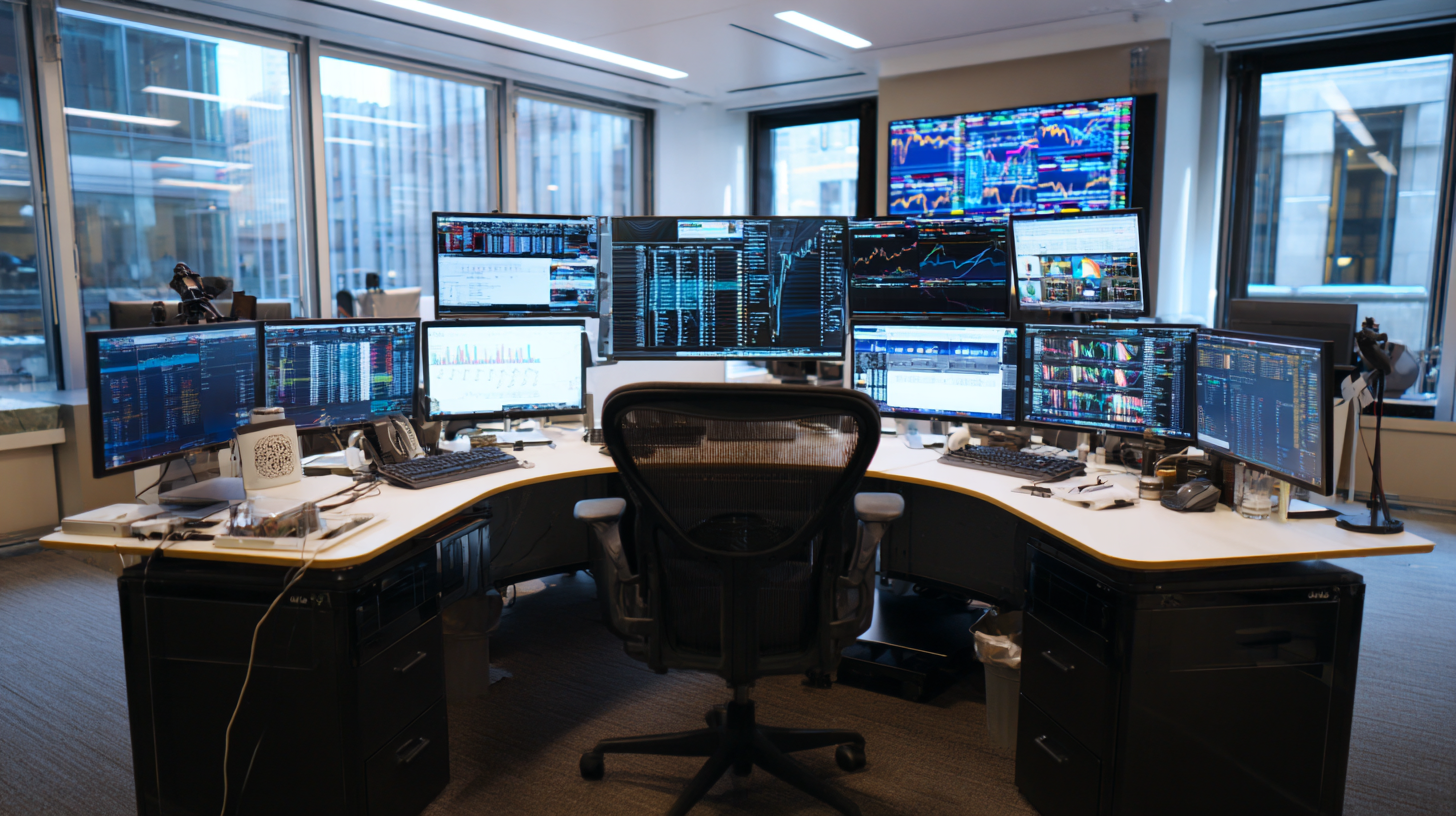Staverton is a British designer & manufacturer of contemporary office furniture.
Call us today: +44 (0)20 3794 1200
©2025 Staverton (UK) Ltd | Terms | Disclaimer | Cookies | Privacy
![]()
In today's fast-paced work environment, the design and functionality of your workspace play a crucial role in maximizing productivity. One of the most significant elements of any office setup is the desk table, which not only serves as a surface for work but also influences your overall comfort and efficiency. Choosing the right desk table can dramatically impact your work output and well-being, especially in an era where remote work and global procurement have become commonplace. This comprehensive tutorial will guide you through the essential factors to consider when selecting the best desk table for your needs, emphasizing the importance of balancing aesthetics with practicality.

From size and material to ergonomics and organization, we will explore the top reasons why your desk table deserves careful consideration to create a workspace that inspires creativity and enhances performance.
In today’s fast-paced business environment, maximizing workspace efficiency is crucial for organizations aiming to enhance productivity. According to a report by Steelcase, an optimized workspace can increase employee productivity by up to 20%. This underscores the importance of choosing the right desk table, as it serves as the foundation for a well-organized and effective work area.
When selecting a desk table, several key factors should be considered. Firstly, ergonomics plays a significant role; a poorly designed workspace can lead to discomfort, which is estimated to cost U.S. businesses around $300 billion annually in healthcare expenses and lost productivity, as highlighted in a study by the Occupational Safety and Health Administration (OSHA). Additionally, the size and layout of the desk should align with both the physical space and the specific tasks performed, ensuring ample room for technology and personal items.
Moreover, the versatility of the desk table is essential for adapting to the evolving needs of employees. With the rise of remote work, a report from the International Workplace Group indicates that 70% of professionals work remotely at least one day a week. Therefore, choosing a desk that accommodates flexible work arrangements can significantly contribute to overall workspace efficiency.
| Desk Type | Material | Dimensions (L x W x H) | Weight Capacity | Price Range ($) | Ergonomic Features |
|---|---|---|---|---|---|
| Standing Desk | Bamboo | 60 x 30 x 48 inches | 200 lbs | 300 - 600 | Height Adjustable |
| Executive Desk | Wood Veneer | 72 x 36 x 30 inches | 300 lbs | 500 - 1000 | Cable Management |
| Compact Desk | Metal/Glass | 47 x 23 x 30 inches | 150 lbs | 150 - 300 | Space-Saving Design |
| L-Shaped Desk | MDF | 66 x 66 x 30 inches | 350 lbs | 400 - 800 | Dual Workspace |
 When selecting a desk table that supports optimal productivity, several essential features should be prioritized. First and foremost, consider the size and adjustability of the desk. A desk that can be adjusted in height allows for a versatile workspace, accommodating both sitting and standing positions. This flexibility not only promotes better posture but also enhances overall comfort during long working hours.
When selecting a desk table that supports optimal productivity, several essential features should be prioritized. First and foremost, consider the size and adjustability of the desk. A desk that can be adjusted in height allows for a versatile workspace, accommodating both sitting and standing positions. This flexibility not only promotes better posture but also enhances overall comfort during long working hours.
Tip: Look for a desk with built-in cable management systems. This feature keeps your workspace organized and helps reduce distractions caused by cluttered cables, allowing you to focus better on your tasks.
Another critical aspect is the material. A sturdy desk made from quality materials will provide durability and stability, which are vital for long-term use. Additionally, consider the surface area – a larger work surface can facilitate multitasking and provide enough space for your essential tools, whether it's a computer, documents, or creative materials.
Tip: Think about incorporating ergonomic designs into your desk choice. Desks that support optimal arm angles and wrist positions can prevent strain and fatigue, ultimately contributing to a more productive work environment.
When it comes to selecting the ideal desk table for maximizing workspace efficiency, assessing material quality and durability is paramount. The longevity of a desk often hinges on the materials used in its construction. Solid wood, for instance, offers not only aesthetic appeal but also resilience against wear and tear. In contrast, particle board, while more affordable, may not withstand the rigors of daily use, leading to a premature need for replacement. Understanding the differences in materials can significantly influence procurement decisions, ensuring that the chosen desk will endure the test of time.
Moreover, the finish applied to the desk is equally important. High-quality finishes not only enhance the visual appeal but also provide protective barriers against scratches, stains, and moisture. Materials like metal and tempered glass can also contribute to a desk's durability. When considering procurement from a global perspective, it’s essential to account for variations in material sourcing and manufacturing processes, as these can affect the overall quality. By prioritizing high-grade materials and finishes, businesses can invest in desk tables that not only meet aesthetic standards but also promote a productive and efficient workspace well into the future.
Design aesthetics play a crucial role in creating a motivating workspace that fosters productivity and creativity. When selecting a desk table for global procurement, it’s essential to consider not only functionality but also how the design will influence the overall ambiance of the workspace. A well-designed desk can serve as a focal point that inspires innovation, while its color and materials can evoke specific emotions, promoting a sense of calm or energizing the mind.
Incorporating elements such as sleek lines, ergonomic shapes, and harmonious color palettes can significantly enhance the work environment. For instance, natural materials like wood can create a warm and inviting space, whereas minimalist designs with metal accents might suit a more contemporary setting. Additionally, thoughtful placement of the desk relative to natural light can improve mood and focus. Ultimately, the right desk table should reflect both personal style and the brand’s identity, turning the workspace into a motivational haven.
When sourcing desk tables from China, understanding the global procurement strategies is essential for maximizing workspace efficiency. According to a recent report by MarketsandMarkets, the global office furniture market is projected to reach $160 billion by 2025, reflecting a robust demand for ergonomic and space-efficient designs. For businesses looking to optimize their workspace, selecting the right desk table can significantly enhance productivity and employee wellbeing.

In addition to evaluating design and functionality, buyers should consider the cost-effectiveness of sourcing from China. A study by Statista indicates that China's furniture exports reached approximately $46 billion in 2021, making it the largest supplier of office furniture worldwide. This overwhelming output allows global procurement teams to negotiate favorable terms and access a wide variety of styles that fit different organizational needs. Efficient logistics and established supply chains further support swift and reliable delivery, crucial for businesses aiming to maintain agility in their operations.
Staverton is a British designer & manufacturer of contemporary office furniture.
Call us today: +44 (0)20 3794 1200
©2025 Staverton (UK) Ltd | Terms | Disclaimer | Cookies | Privacy
![]()
Please enter your details below to access the design files.
Please enter your details below to access the design files.
Please enter your details below to access the design files.
